Hitchcock Review
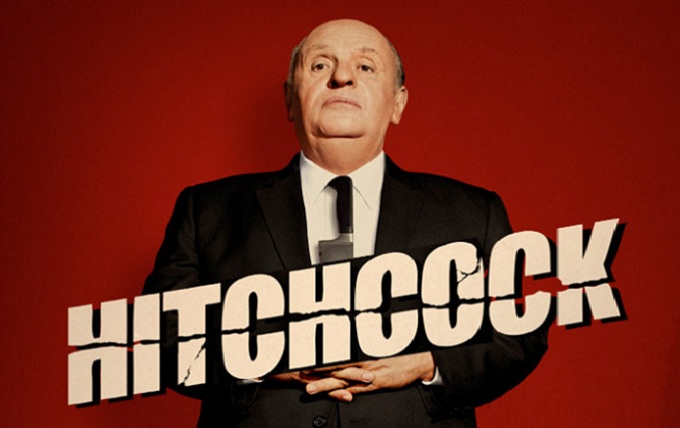
The Plot
The sensational true story of how iconic director Alfred Hitchcock made his undisputed masterpiece Psycho. Hitchcock is an intimate biopic exploring the infamous obsessions and eccentricities o the so called master of suspense. The film also delves deeply into Hitchcock’s profound relationship with his wife and constant creative collaborator Alma Reville.
The Good
Anthony Hopkins tackles an incredibly difficult task, in trying to deliver a performance that captures such a familiar figure without resorting to a simple caricature. His convincing work is especially impressive given the obvious burden of the fat suit and extensive makeup he’s wearing. Skilled acting actually does as much as his fabricated physical appearance to transform Hopkins into Hitchcock.
Helen Mirren is likewise on typically accomplished form as Hitchcock’s long suffering and supportive wife Alma. She does a particularly excellent job of capturing the frustrations of living in the shadow of Hitchcock’s demanding ego and celebrated public image.
Fans of the silver screen and Hitchcock’s genius will also enjoy seeing other familiar names and faces brought to life, for example by modern day screen sirens Scarlett Johansson and Jessica Biel. The film delves beyond the simple details of Hitchcock’s private life to provide a dramatic documentation of the troublesome production of a movie masterpiece.
The Bad
Alfred Hitchcock had such a unique physical and vocal presence that it’s hard for anyone to truly do justice to that vivid memory. Anthony Hopkins certainly succeeds in capturing Hitchcock’s mannerisms and instantly recognisable voice, but in truth the extensive makeup required to physically transform him into the rotund director is distracting at times. Sadly there’s a certain rubbery quality to his face that even an accomplished actor can’t disguise.
The film also has wider issues. Watching Hitchcock fight with reluctant studio heads, dismissive critics and self-doubt as he battles to make the definitive slasher film; is less entertaining and dramatic when we all know full well the film did indeed get released and proved to be one of the greatest successes of his enviable career.
The film tries to add some depth and darkness by exploring Hitchcock’s private and very public obsession with murder. However having Hitchcock imagine friendly chats with dead serial killers feels heavy handed and overly melodramatic. Similarly showing Hitchcock’s lurid fantasies of violence seems gratuitous and ineffective. We know full well Hitchcock isn’t about to go on a killing spree, dispatching his wife and leading ladies.
The Ugly Truth
Hitchcock does a fine job of portraying one of cinemas most enduring icons at a landmark moment in filmmaking history. It should also certainly satisfy nostalgic fans looking for a peak into the making of a classic film.
Lincoln Review
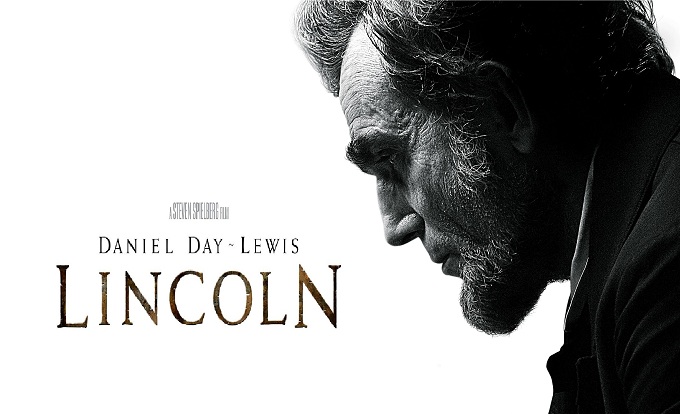
The Plot:
Steven Spielberg’s long awaited biopic of iconic American President Abraham Lincoln focuses on the last few months of his life as he attempts to pass the 13th Amendment through the House of Representatives and abolish slavery forever. However this triumphant historical moment is set against the end of the brutally destructive American civil war and his own personal sacrifices.
The Good:
With a stellar cast including Academy Award nominees Tommy Lee Jones, Sally Fields and Daniel Day-Lewis, Lincoln was always destined to be something special. With Steven Spielberg at the helm and Tony Kushner drafting the screenplay, this dialogue heavy insight into one of the most riveting moments of American history is not to be missed.
Abraham Lincoln had a rare almost mythical quality which has endured throughout the ages as an emblem of the best of the American dream and the ideals it represents. But the real triumph of Spielberg’s latest masterpiece is that it humanises such a statuesque historical figure, making him finally a real living and breathing man. Spielberg expertly delivers a Lincoln who is simultaneously both the inspiring father of a nation and an ordinary family man.
This film simply couldn’t have been made without Daniel Day-Lewis. He remains the ultimate method actor, physically and emotionally transforming himself into Honest Abe. It’s a brilliant nuanced performance that is instantly recognisable and truthful; whilst skilfully avoiding any of the overall familiar stereotypes associated with more crude Lincoln caricatures. With a perfectly intoned voice, shuffling walk and passive nature; you cannot fault Day-Lewis’s characterization and awards a-plenty should be placed firmly in his hands.
Tommy Lee Jones is equally magnificent as radical pro-abolition supporter Thaddeus Stephens. His quick tongued, imposing authority guides us through the House of Representative scenes mesmerizingly when Day Lewis is not present. The surprising humour within the film falls mainly on Jones capable shoulders. His quick quips instantly make you chuckle with an effortless ease that gives the film a welcomed light relief. This Texan actor is back to his best in this film and like Day-Lewis picks his key moments to truly shine and provide award worthy performances throughout.
Rounding out the rest of the cast, there are no performances big or small that fall through the cracks. Every character is carefully considered and acted with dedication and conviction, most notably through David Strathairn, James Spader and Hal Holbrook.
The Bad:
Taking a step back from glossy visuals, Spielberg and Kushner have opted for a narrative heavy theatrical style which may prove slightly off-putting for some audiences. A demanding 150minute runtime is packed with in depth information about the intricacies of the American legislative process and a dizzying array of characters.
The film’s trailers may have tended to create a potentially misleading impression that Lincoln is a sweeping civil war epic full of rousing battles on a grand scale. However in truth the film is far more compact and intimate as a simple character drama. The film has sharp and quick moving dialogue that is engaging and clever, although admittedly a lot to take in on a single viewing. But really that’s just an excuse to watch Lincoln repeatedly.
The Ugly Truth:
Lincoln is exciting and heart-warming in spite of its slow pacing, representing a dazzling return to form for one of the greatest directors of all time. Daniel Day-Lewis delivers a simply astonishing performance to bring the spirit of one of the most recognizable and significant figures in world history back to life on the big screen. A stellar supporting cast and expert direction from Steven Spielberg make Lincoln must see magnificence.
Red Carpet interviews below with Steven Spielberg, Sally Field and Daniel Day-Lewis at the Dublin charity premiere:
Zero Dark Thirty Review
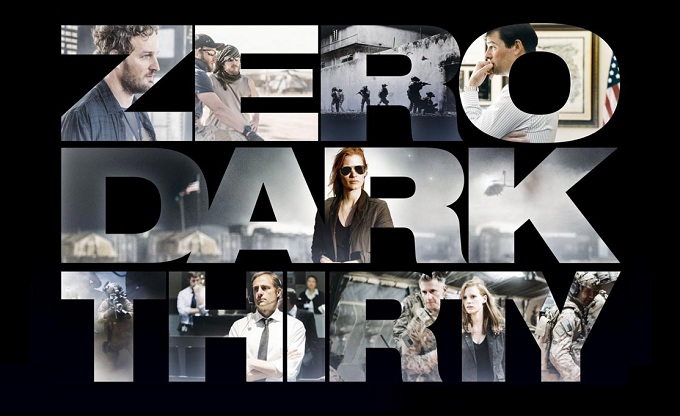
The Plot:
Inspired by actual events a determined CIA agent leads the global hunt for terrorist mastermind Osama Bin laden. She must confront indecisive superiors, well trained terrorists and the harsh realities of brutal interrogations in her quest for justice. Her mission ultimately climaxes in one of the most infamous military assaults in human history.
The Good:
Director Kathryn Bigelow already won an Academy Award for tackling the sensitive subject of the Iraq war in the Hurt Locker, candidly exploring the troubled existence of an American bomb disposal soldier. In Zero Dark Thirty she tackles the main event of the war on terror, delivering a compelling re-enactment of the world’s most notorious manhunt.
Allegedly drawn from intimate sources with the CIA and the American military the script injects a pounding dramatic momentum into the protracted search. Despite audiences being fully aware of the ultimate fate of Osama Bin Laden, the film finally delivers the satisfaction of witnessing exactly how he met his demise. Literally taking audiences inside the final fateful raid on the Pakistan compound where he had eluded international authorities for so many years.
Despite misleading trailers the film shouldn’t be mistaken for simply a gun totting action adventure. Bigelow explores the work, sacrifices and compromises that ultimately facilitated a successful assassination. Thanks to a minimal, angry and intense performance from Oscar nominated star Jessica Chastain; the film avoids being mistaken for a protracted army recruitment ad. Brave directing choices and understated performances from the entire cast help the film easily refute any accusation of sensationalism or of glamourizing the evils of war.
As the film’s focal point, Jessica Chastain channels the same spirit of unflinching commitment in the face of military and moral complexity that epitomized Jeremy Renner’s stoic performance in The Hurt Locker. This allows director Kathryn Bigelow to continue probing politically and emotionally provocative subject matter with a reluctant knife.
The Bad:
Audiences are likely to bring their own political agendas into the cinema and Zero Dark Thirty simply cannot satisfy everyone. It is not a triumphant flag waving salute to American military power. But at the same time it falls short of being a damming condemnation of the atrocities committed by both sides in the ‘war on terror’.
Some will commend the film for avoiding political sermonizing in favour of arresting and emotional storytelling. But others will no doubt criticize the extent the film avoids explicitly addressing the wider issues behind the infamous events depicted. There’s a fine line between giving an audience room to make its own assessments and simply dodging responsibility. That balance is particularly important when a film claims to be an accurate depiction of real life events.
The film’s frequent graphic depiction of CIA agents torturing prisoners has attracted inevitable controversy, particularly because the film rarely if ever verbalizes an opinion on whether such actions are justifiable necessities of war or simply war crimes. Audiences searching for clear cut answers and ideological certainties may be a little dissatisfied with film’s lack of open commentary.
The Ugly Truth:
Though lacking some of the nail biting tension of Bigelow’s previous effort The Hurt Locker, Zero Dark Thirty has an added dimension of fascination due to its depiction of such notorious real life events. Guaranteed to inflame discussion across the globe the film is thought provoking and meticulously well crafted. Its lack of obvious political agenda is probably wise and what remains is a tense credible drama.
The Last Stand Review
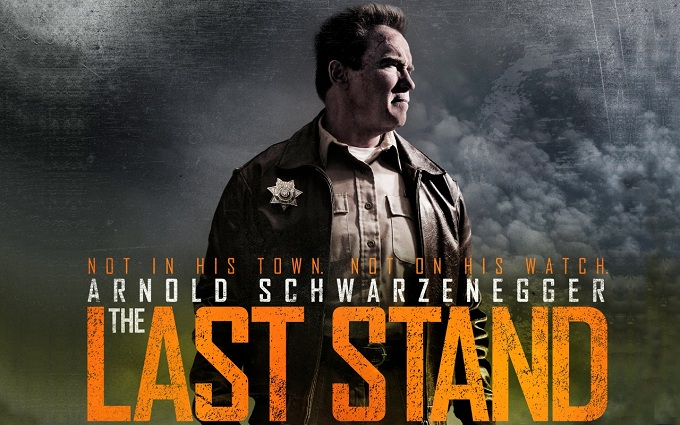
The Plot:
Arnold Schwarzenegger plays a former LA cop enjoying semi-retirement as the Sherriff in an uneventful border town. But when the ruthless leader of a drug cartel escapes federal custody on the run for Mexico, the only thing standing in the way of his army of henchmen is Arnie and a small band of inexperienced deputies.
The Good:
After abandoning Hollywood superstardom to rule California as the Governator, the big screen return of Arnold Schwarzenegger is a long awaited delight for action fans. Although at 65 he is understandably no longer the god like specimen of physical perfection they will fondly remember. However Arnie has a charismatic aura and iconic status that somehow still transcends a diminishing physique and any conventional assessments of acting prowess.
The Expendables 2 proved that Arnie can still apply his distinctive voice to a familiar one liner with joyous results. The Last Stand takes advantage of that, particularly during its more explosive later stages. However, it may surprise people to see Schwarzenegger attempt to deliver a more vulnerable and subtle performance for much of the film. Abandoning efforts to maintain his familiar aura of invincible invulnerability makes Schwarzenegger’s performance a little more plausible and gives him fresh territory to explore as an aging underdog.
Korean Director Jee-Woon Kim of ‘The Good The Bad and The Weird’ acclaim brings flashes of his stylish action madness to The Last Stand. Trash talking old ladies and dispatching bad guys with a flare gun are among the film’s more absurd and gleefully silly delights. Once the real fighting starts the film massively changes gear, shifting into full throttle fun.
The Bad:
The Last Stand openly acknowledges that Arnie is far from the herculean hero of his youth, but it is still difficult to avoid noticing just how much impact the pressures of life and politics have had on him.
It is also impossible to avoid comparing the film overall to the type of films Schwarzenegger was making in his prime. Spectacular action blockbusters like Total Recall or Terminator 2 pushed the boundaries of special effects and helped define the action movie genre. Schwarzenegger films were unique, memorable and unexpected. Sadly while The Last Stand is not without its own merits, it simply isn’t any of those things. Beyond Schwarzenegger’s enduring charisma and the tantalising allure of his big screen return there’s nothing truly special on show.
The film’s stifling attempts to be genuinely dramatic for much of its opening hour rob it of the kind of consistent joy that more self-aware humour could have brought. Although some will argue that Schwarzenegger’s efforts to deliver a real performance in the face of an obvious temptation to simply deliver a fan pleasing caricature of himself should be commended.
The film’s supporting cast is fairly full of familiar faces like Forrest Whitaker, Jamie Alexander, Luis Guzman and Johnny Knoxville. Sadly predictable performances and a limp script largely reduce the film’s background characters to either plot devices or by the number comedic relief. Bad Guys Eduardo Noriega and Peter Stormare are also a little lackluster, lacking genuine menace or humour.
The Ugly Truth:
While not quite the unequivocally triumphant return some fans may have dreamed of, The Last Stand does begin Arnold Schwarzenegger’s big screen rehabilitation with flashes of greatness, particularly once the bullets and one liners start flying. If you enter the cinema with more modest expectations you’ll leave with a bigger smile on your face. Either way, The Sheriff is back in town.
Red Carpet Interviews with Arnold Schwarzenegger, Johnny Knoxville and Jamie Alexander at the London Premiere below:
Flight Review
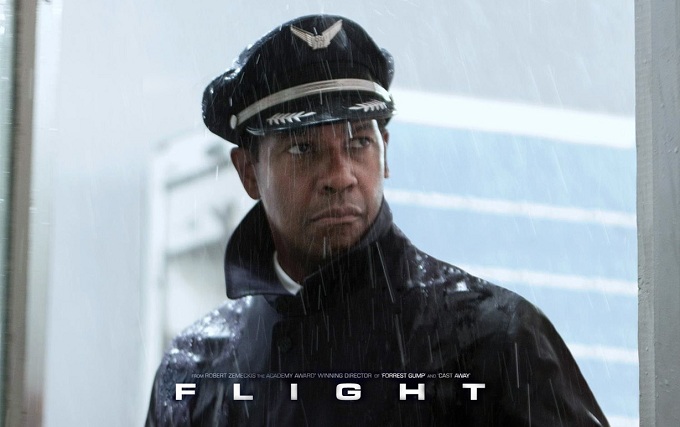
The Plot:
When a passenger plane suffers catastrophic problems at 30,000 feet, its pilot somehow manages to make a miraculous lifesaving landing. However as the authorities and media investigate his heroic actions he struggles to conceal a troubling secret that could destroy everything.
The Good:
Flight is certainly not the first film to depict a plane crash, but it is one of the most convincingly traumatic depictions you’ll ever see. Despite the fact you enter the cinema fully aware of the impending disaster it’s still memorably exhilarating, particularly on the big screen.
Though the film’s opening thirty minutes is spectacular, the real showpiece is Denzel Washington’s performance throughout the entire film. It’s an earnest reminder that he remains one of the most capable and powerful leading men in Hollywood. It is little surprise that it has earned him the recognition of yet another well-deserved Oscar nod for best actor.
Denzel Washington excels at playing characters which inhabit intriguing moral grey areas. What really makes him such an excellent leading man is his committed willingness to portray characters that are flawed, arrogant and damaged in ways that risk alienating audiences. This latest role as Captain Whip Whitaker is a prime example of such brave choices, offsetting his innate charisma against the dark demons of addiction and unappealing self-pity. Whether or not you’re familiar with the destructive pain of addiction in its various forms, this performance is poignantly accurate and sincere.
Although the film largely deals with sombre subject matter, Director Robert Zemeckis adds a little light in the darkness. John Goodman’s appearance as a jovial drug dealer is a particular welcome respite, literally diffusing the tension of the characters and audience alike.
The Bad:
After such an unashamedly spectacular opening sequence some audiences will find the slow moving anguish that follows a slightly frustrating loss of pace. Robert Zemeckis previously directed Castaway, starring Tom Hanks as a modern day Robinson Crusoe. There are actually considerable parallels between the two films, as both abandon extremely eventful beginnings in favour of prolonged sullen introspection. In truth it will satisfy those seeking thought provoking more than entertainment.
British actress Kelly Reilly delivers an adequate performance in her role as a recovering drug addict and love interest, but her presence does push the film towards melodramatic territory. Without credible romantic chemistry her only function is to give audiences a wider frame of reference for the tragedies of addiction.
The Ugly Truth:
Flight boasts an extraordinary sequence of realistic disaster footage and an Oscar nominated performance from Denzel Washington. The film delivers an unflinching portrait of addiction grounded around Washington’s believable, understated and powerful portrayal.
Red Carpet interviews below with Denzel Washington, Kelly Reilly and Director Robert Zemeckis from the film’s London premiere: